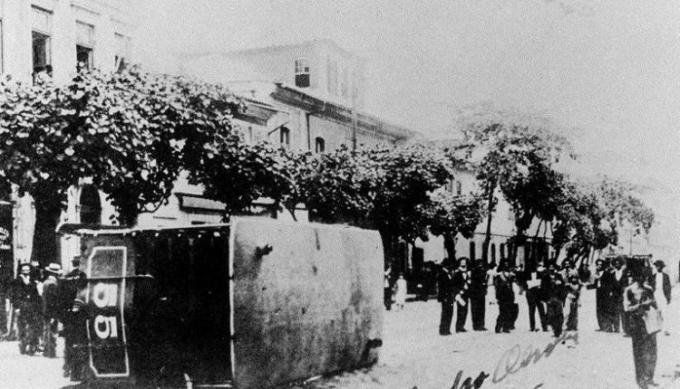
A Vaccine Revolt, which took place in 1904, was a popular uprising against the public vaccination campaign proposed by the federal government.
the city of Rio de Janeiro — then the capital of Brazil — was the setting for the rebellion. Articulated by the public health physician Oswaldo Cruz (1872–1917), the aim of the vaccination campaign was to eradicate smallpox, which could not be eliminated by hygienic methods, such as:
see more
Scientists use technology to unlock secrets in ancient Egyptian art…
Archaeologists discover stunning Bronze Age tombs in…
With that, the solution to the problem would be mandatory vaccination of the population of Rio de Janeiro.
Brazil was even described as the most unhealthy place in the world by the European press at the end of the 19th century, due to frequent outbreaks of bubonic plague, malaria, yellow fever It is smallpox.
To the
At the beginning of Brazil Republic, several public health institutions were created in the country, constituting the first effort in the health area that linked pure science and applied science.
One of them was the Instituto Soroterápico Federal (current Oswaldo Cruz Foundation), founded by the public health doctor Oswaldo Cruz in the city of Rio de Janeiro, which has become one of the most important scientific institutions in the world. Brazil.
Oswaldo Cruz became the General Director of Public Health in 1903. Its main mission was to combat outbreaks of yellow fever, bubonic plague and smallpox in the country's capital, the city of Rio de Janeiro.
To eliminate yellow fever, he sought to combat the breeding grounds of mosquitoes that transmitted the disease.
For this, the population's homes were invaded by the brigades to fight mosquitoes and analyze the sanitary conditions of the homes. Such a measure displeased the cariocas.
To exterminate the bubonic plague, he created rat elimination campaigns.
To combat smallpox, the solution found by the public health physician was to convince Congress to approve mandatory vaccination against the disease.
Thus, in 1904, the Mandatory Vaccine Law.
It authorized health officials to vaccinate all Brazilians from the age of six months against smallpox, under penalty of fines and dismissal.
The population, which was already dissatisfied with the demolition promoted by the government, in 1902, of the big houses and hovels in the center,was even more dissatisfied.
These residences were inhabited by the popular classes who were subjected to living on the outskirts and in the hills where they built houses in a precarious way.
Added to this, the invasions in their residences and the lack of orientation of the population, by the government, made the popular react violently against the measure.
They set fire to trams, tore up rails, in addition to clashing with the police.

As a result, the government ordered ships to bomb the neighborhoods located on the waterfront and suspended the vaccine requirement.
Learn more at: Revolt of the Chibata


